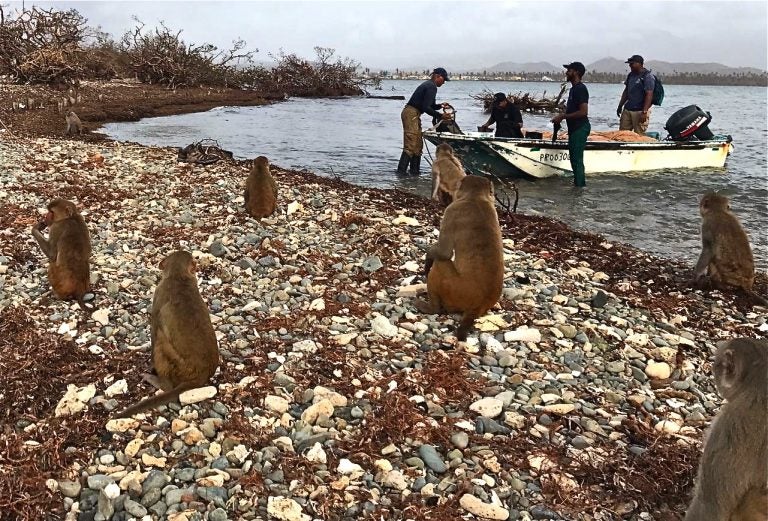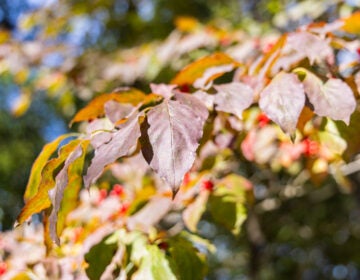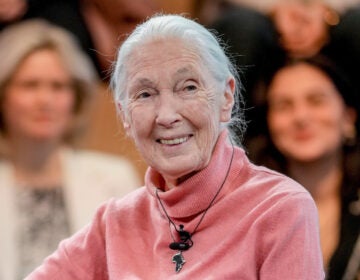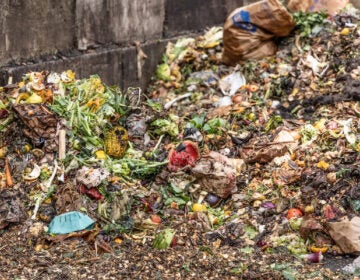After hurricane hits 'Island of Monkeys,' Penn researcher helps macaques' minders
An island colony of wild rhesus macaque monkeys — the oldest primate research site in the world — suffered major storm damage, but no deaths.

Hurricane Maria hit the Puerto Rican island of Cayo Santiago, home to the world’s longest-running primate-research site. (Bonn Aure/University of Puerto Rico)
As recovery efforts continue in Puerto Rico to bring water, food, and power to people devastated by Hurricane Maria, researchers at the University of Pennsylvania are also worried about their monkeys.
Cayo Santiago is a tiny island about a half-mile off the eastern shore of Puerto Rico. It’s also called Island of the Monkeys, because its main inhabitants are thousands of rhesus macaque monkeys.
It is the oldest active research site for primate behavior — for 80 years, monkeys have roamed freely amid a year-round support staff that counts them, tracks them, stocks the island with food, and see that they stay reasonably healthy.
For the last 10 years, Penn’s Michael Platt has been going to Cayo Santiago to study group behaviors. As an integrated knowledge professor, his specialties spread across neuroscience, psychology, and marketing.
“My work focuses on how we make decisions that impact others,” he said. “Our own dependency on others is very much evident in the way monkeys depend on others.”
Platt and his colleagues in other universities who use Cayo Santiago were deeply concerned when all communication with the hurricane-devastated island ceased. What trees remained after the storm had lost all their leaves, and monkey habitats vanished.
“So far, no dead bodies. No dead monkeys found anywhere,” said Platt. “We are optimistic that they all survived. How they did so is a mystery.”
The first concern was for the island’s support staff, many of whom live nearby in the nearby town of Punta Santiago. Like most of Puerto Rico, they lost power, food, and water. After a few days with no word, a group of researchers — including Platt — hired a helicopter to buzz Punta Santiago to find out what happened.
The helicopter confirmed the town suffered major damage. Some one had painted on the street — in big letters so it could be seen from the air — “S.O.S. Necesitamos Agua/Comida!!” (We need water/food!!)
An aerial photo of that message quickly spun around social media.
“It was posted on Twitter, and eventually Kim Kardashian retweeted it,” said Platt.
This picture breaks my heart! I will be donating to Puerto Rico and help them get the food & water they desperately need. Please donate! pic.twitter.com/l3kOXifa1I
— Kim Kardashian West (@KimKardashian) September 26, 2017
Kardashian has more than 56 million Twitter followers. Soon, the governor of Puerto Rico visited Punta Santiago with supplies in tow.
Even during the difficult weeks of storm recovery, Cayo Santiago’s support staff did not waver in its duty to the wild monkeys.
“Despite the fact that the staff, themselves, have suffered tremendous losses — some lost their homes and cars — they are dedicated to the science and to the animals,” said Platt. “They are out [on Cayo Santiago] for hours every day, for as long as they can be.”
While the staff may feel obligated to the rhesus macaques, they are also protecting their own economy. As the most prominent and contained wild primate site in the world, the science of monkeys is the main local industry.
WHYY is your source for fact-based, in-depth journalism and information. As a nonprofit organization, we rely on financial support from readers like you. Please give today.





